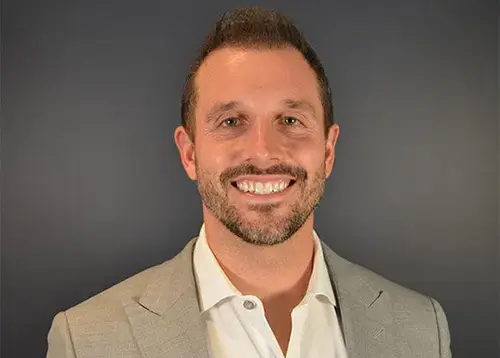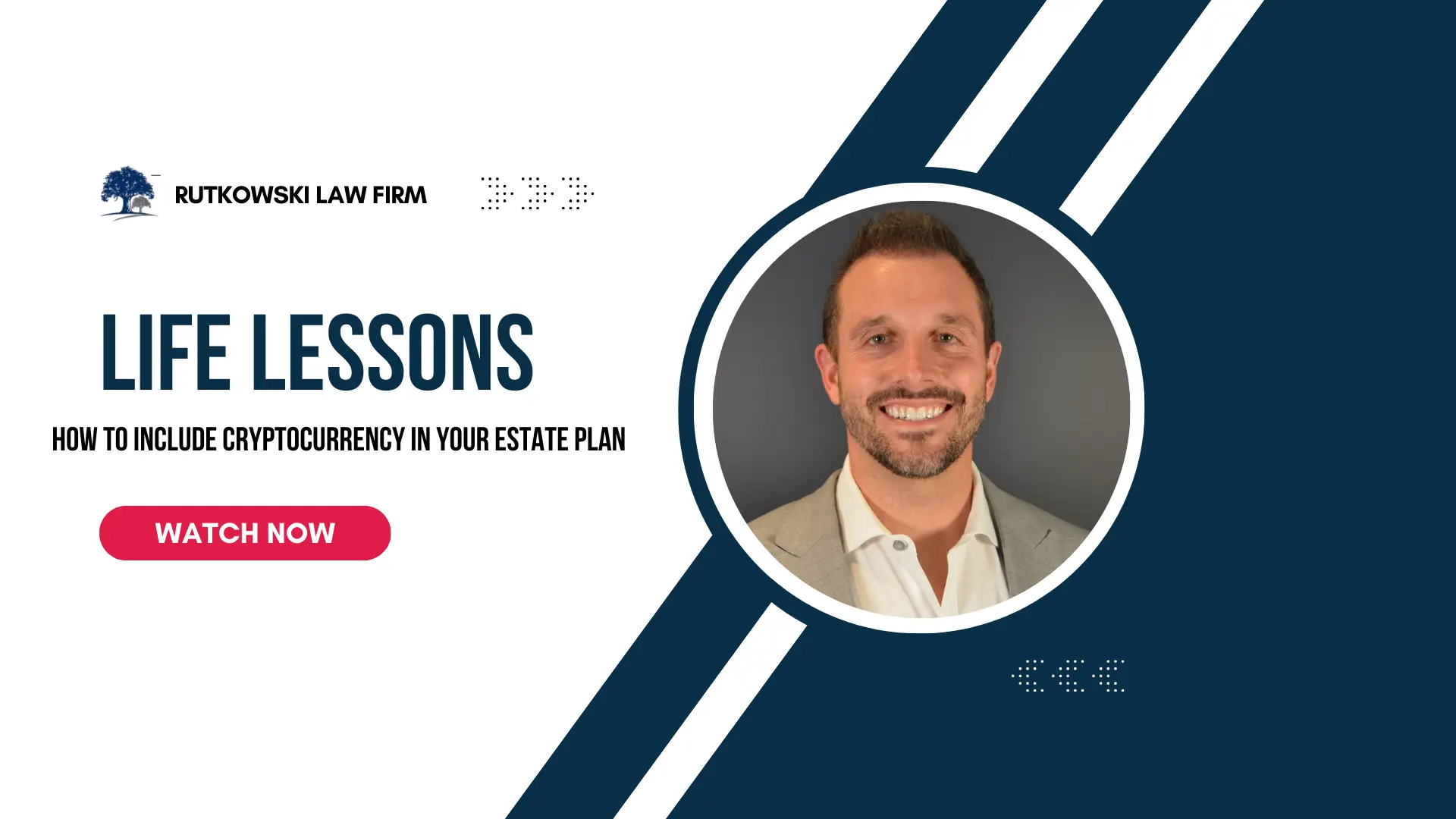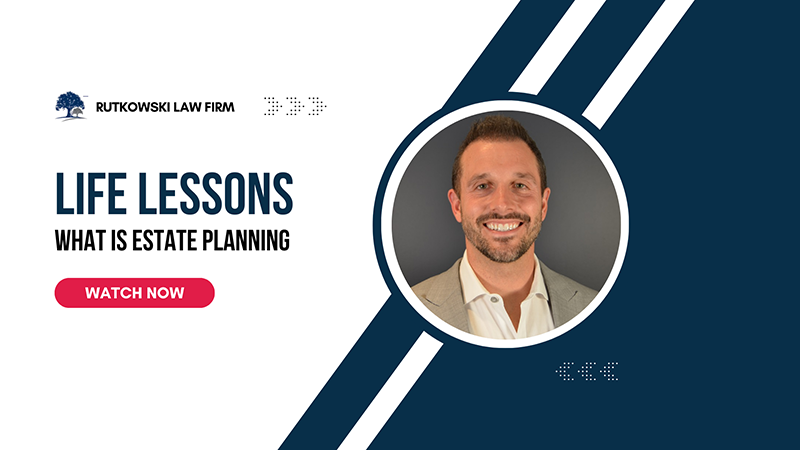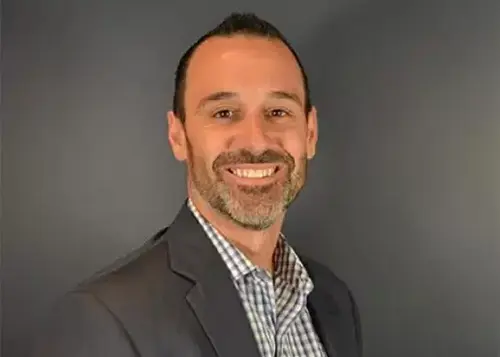Michigan Estate Planning Lawyers
What Is Estate Planning?
Estate planning is about more than distributing assets — it’s about protecting your family, preserving your wishes, and preparing for every stage of life. Rutkowski Law Firm helps Michigan families build thoughtful, flexible plans that honor what matters most.

Trusted by Over 450 Clients with a 4.9 Star Rating
Very professional and supportive as I moved through the estate planning process. Great communication and very easy to work with. They were upfront about the fee schedule. I highly recommend this firm.
Very professional and supportive as I moved through the estate planning process. Great communication and very easy to work with. They were upfront about the fee schedule. I highly recommend this firm.

Plan for Every Stage of Life
The Building Blocks of an Estate Plan
A complete estate plan protects your family’s future through legal tools like Wills, Trusts, Powers of Attorney, and more. Explore the key pieces that create a strong plan — and how they work together to give your family peace of mind.
- Last Will and Testament :
- Create a clear plan for how your assets will be distributed and who will care for minor children.
- Wills :
- Create a clear plan for how your assets will be distributed and who will care for minor children.
- Revocable Living Trusts :
- Create a clear plan for how your assets will be distributed and who will care for minor children.
- Powers of Attorney :
- Designate trusted individuals to make financial and healthcare decisions if you can’t.
- Lady Bird Deeds :
- Keep your family home out of probate and protect it for future generations
Comparison
Will vs. Trust: Which Is Right for Your Family?
Wills and Trusts are the two most common estate planning tools — but they serve different purposes. Many families use both to create the strongest plan possible.
Main Purpose
Will: Distributes assets through probate after death
Trust: Manages and distributes assets during life and after death without probate
Privacy
Will: Public record after death
Trust: Private and confidential
Control During Life
Will: Limited impact until death
Trust: Allows management of assets if incapacitated
Flexibility
Will: Simple to create but less control
Trust: More customizable but requires maintenance
Ideal For
Will: Simple estates and straightforward distributions
Trust: Families wanting privacy, control, or asset protection

Planning for Every Stage of Life
When Should Families Use Estate Planning Services?
Estate law isn’t just for the wealthy or the elderly. Every Michigan family benefits from having a plan — no matter their age or stage of life. Whether you're newly married, welcoming a new child, buying a home, or planning for retirement, the right time to plan is now. Proactive planning gives your family security, flexibility, and peace of mind.
- Marriage or Partnership :
- Establish financial protections and plan for your future family together.
- Birth or Adoption of a Child :
- Name legal guardians, create a Will or Trust, and plan for your child’s future security.
- Buying a Home :
- Protect your real estate investment and make sure it passes smoothly to your loved ones.
- Changes in Wealth :
- Reflect significant changes in wealth, ensuring your assets are protected and your family’s future stays secure.
- Health Changes :
- Plan for unexpected healthcare needs through Powers of Attorney and Healthcare Directives.
- Retirement Planning :
- Ensure your assets are preserved, your legacy is protected, and your wishes are clearly documented.
How We Help Michigan Families Create a Plan
Our estate planning process is designed to give you clarity, protection, and peace of mind. We guide you through every decision — and stand beside your family for years to come.
Step 1: Initial Consultation
- We learn about your family, goals, and unique situation.
Step 2: Plan Design
- We create a customized estate plan tailored to your wishes.
Step 3: Document Signing
- Finalize your legal documents with confidence and clarity.
Step 4: Lifetime Support
- We’re here whenever your family’s needs or life situation changes.

Covering More Than Just Assets
Estate Planning Services for Health, Family, and Legacy
True estate law isn’t just about money — it’s about your life, your loved ones, and your values. We help you protect every part of your story.
- Asset Protection Planning :
- Shield savings, real estate, and investments from risks and costs.
- Revocable Living Trust :
- Manage assets privately, avoid probate, and stay in full control.
- Healthcare Directives :
- Ensure your medical treatment preferences are honored.
- Guardianship Planning :
- Protect young children by naming trusted guardians in advance.
Estate Planning Guide
Estate Planning is an essential process that will protect your assets and ensure you’re your estate is distributed according to your wishes after your death.
Many people make mistakes when creating their estate plan, which can lead to unnecessary stress, confusion, and costly legal battles for their loved ones. Below, our estate planning team put together the top 10 and most common mistakes we see in estate planning.

Common Questions About Estate Planning
Meet Your Leadership Team
Whether you need a will, trust, asset protection plan or are in need of medicaid crisis planning, our team is here to help! We are dedicated to providing you with the best legal representation possible. Call us today to book your consultation.
Meet the Whole TeamRequest a Consultation
With offices in Rochester and Bloomfield Hills, we’re proud to serve families throughout Michigan. Prefer virtual? We offer video consultations for estate planning, so you can plan from the comfort of home.
Please fill in the form and one of our customer service representatives will be in touch first thing on the next business day.
If you'd rather book a discovery call so you know exactly when to expect a call from our customer success agents, you're welcome to click the link below and find a time that works best for you.
“Their whole team was amazing to work with! The attorneys were very knowledgeable and made it easy to understand. We chose virtual planning process option because it was so much more convenient with my work schedule but they offered to meet in person too of we didn't do zoom. Highly Recommended!”
Our Offices
Probate-Proof Your Legacy Before New Rules Hit
Keep your Michigan cottage & digital life out of probate so memories last for your family.

Founder / Attorney
The Hidden Cost of Waiting: Why Medicaid Planning Pays Off Big
Long-term care in Michigan costs over $10K/month—early planning saves your legacy.

Founder / Attorney
We Thought We’d Lose the Cottage—Then We Found a Better Way
Real stories, real solutions. How one Michigan family planned ahead and kept their legacy intact.

Founder / Attorney
From the Video Library
Learn the ins and outs of estate planning from the estate planning attorney, Michael Rutkowski.

How to Include Cryptocurrency in Your Estate Plan
Cryptocurrency can't be titled in a trust, but it can still be part of your estate plan. Attorney Michael Rutkowski explains how to pass on digital assets like Bitcoin using key-based access and trustee instructions.

Attorney at Rutkowski Law Firm

How A Trust Works
Unlike a will, a trust helps you avoid probate, ensures seamless asset distribution, and provides financial protection for your loved ones. In this video, estate planning attorney Michael Rutkowski breaks down the mechanics of a trust, from setting it up to funding it properly.

Attorney at Rutkowski Law Firm

When to Start Estate Planning
Estate planning isn’t just for the wealthy or the elderly—it’s essential for everyone. But when is the right time to start? In this video, estate planning attorney Michael Rutkowski discusses key life scenarios where estate planning becomes crucial.

Attorney at Rutkowski Law Firm





